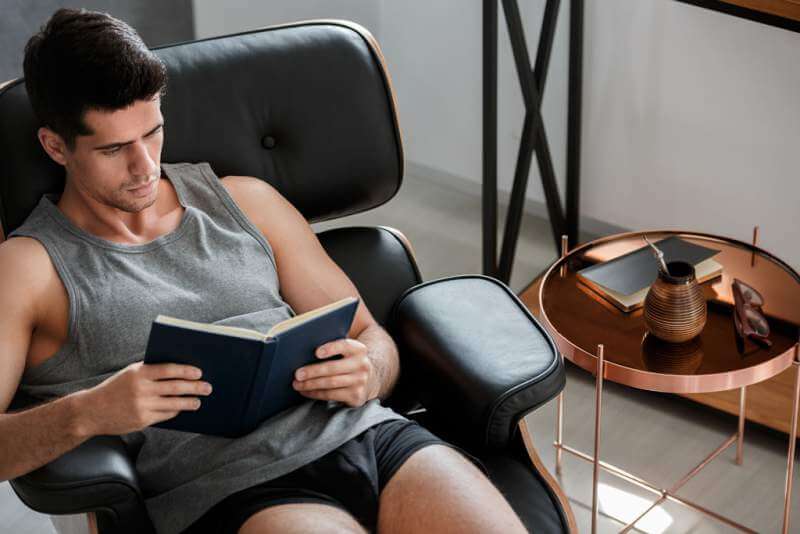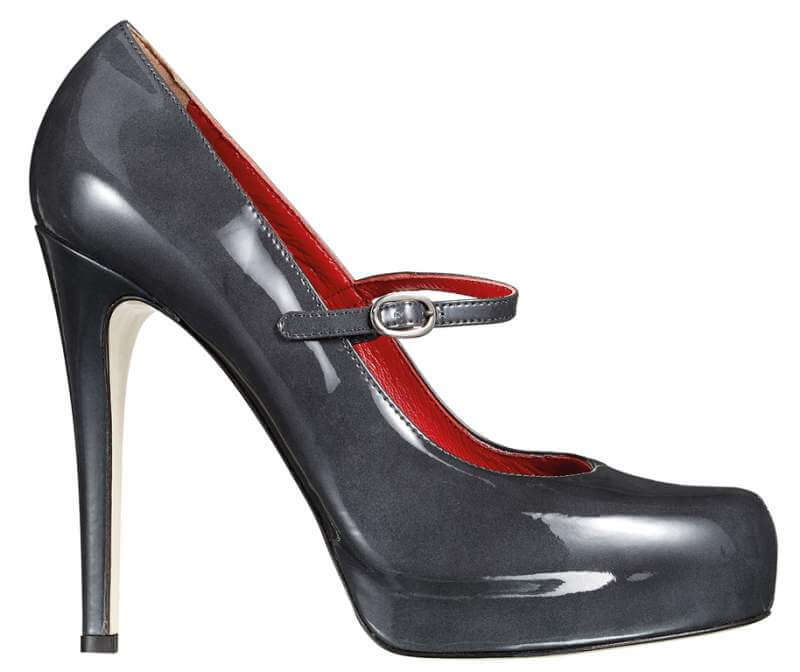Back pain has become an epidemic. According to the American Chiropractic Association, about 50% of working Americans admit to experiencing back pain every year. Moreover, about 80% of the American population experiences back pain at one point in their life.

Another study conducted on more than 4,000 households in North Carolina found that chronic low back pain had increased from 3.9% to 10.2% in just 14 years, from 1994 to 2006. Back pain is usually not chronic and goes away without extensive therapy or surgery. However, certain things can make the pain worse and interfere with your daily life.
- Coughing and sneezing:
 Your spine is made of bones stacked on top of each other that are held together by ligaments and tendons. Back strain is usually caused by small tears in those ligaments after any intense physical activity such as lifting heavy objects. When coughing or sneezing, people tend to hunch which puts 300% more pressure on your spine and stretches the tears caused by the back strain, causing intense pain. You can avoid it by doing two simple things. Firstly, stay in an upright position and maintain the natural arch in your back. Secondly, hold onto something like a wall or a desk when coughing, to stabilize your upper body. Check out this quick, informative video by Dr. Fryer to learn more.
Your spine is made of bones stacked on top of each other that are held together by ligaments and tendons. Back strain is usually caused by small tears in those ligaments after any intense physical activity such as lifting heavy objects. When coughing or sneezing, people tend to hunch which puts 300% more pressure on your spine and stretches the tears caused by the back strain, causing intense pain. You can avoid it by doing two simple things. Firstly, stay in an upright position and maintain the natural arch in your back. Secondly, hold onto something like a wall or a desk when coughing, to stabilize your upper body. Check out this quick, informative video by Dr. Fryer to learn more. - Bad posture:
 Bad posture not only looks ugly aesthetically but can also take a toll on your overall health, especially on your back. Slumping or slouching – no matter if you’re lifting weights, walking, standing, or just sitting – can aggravate back pain. A new form of bad posture is known as text neck or forward head posture. This occurs when your head moves in front of the shoulders because of frequently looking down at your phone. The trick is to good posture is maintaining the natural arch of your spine by staying in an upright position and keeping your head where your ear and shoulder are inline. Also, avoid crossing your legs or tilting towards one side when sitting. If you spend a lot of time sitting in a chair, tuck a rolled pillow behind your back for lumbar support. Likewise, when lifting heavy items, maintain the arch in the back and lift with your legs instead of your back. Try to be as mobile as possible if your job keeps your bound to a desk. For instance, you can set the alarm for every 30 minutes, stand up, and walk over to grab a glass of water.
Bad posture not only looks ugly aesthetically but can also take a toll on your overall health, especially on your back. Slumping or slouching – no matter if you’re lifting weights, walking, standing, or just sitting – can aggravate back pain. A new form of bad posture is known as text neck or forward head posture. This occurs when your head moves in front of the shoulders because of frequently looking down at your phone. The trick is to good posture is maintaining the natural arch of your spine by staying in an upright position and keeping your head where your ear and shoulder are inline. Also, avoid crossing your legs or tilting towards one side when sitting. If you spend a lot of time sitting in a chair, tuck a rolled pillow behind your back for lumbar support. Likewise, when lifting heavy items, maintain the arch in the back and lift with your legs instead of your back. Try to be as mobile as possible if your job keeps your bound to a desk. For instance, you can set the alarm for every 30 minutes, stand up, and walk over to grab a glass of water. - Sedentary lifestyle:
 Western lifestyle is more sedentary than ever before as it’s caught in a cycle of bed, car seat, and office chair. Prolonged sitting can lead to poor posture and limit blood circulation – two major causes of back pain. A recent study has shown that sedentary lifestyle can have a direct relationship with early death. The study involved 8000 people who spent most of their day sitting, some of them even exercised regularly. The results showed that those who were classified as high for both sedentary characteristics and high bout duration were at the highest risk for death. The study claims that sitting for more than 30 minutes is detrimental to your health.
Western lifestyle is more sedentary than ever before as it’s caught in a cycle of bed, car seat, and office chair. Prolonged sitting can lead to poor posture and limit blood circulation – two major causes of back pain. A recent study has shown that sedentary lifestyle can have a direct relationship with early death. The study involved 8000 people who spent most of their day sitting, some of them even exercised regularly. The results showed that those who were classified as high for both sedentary characteristics and high bout duration were at the highest risk for death. The study claims that sitting for more than 30 minutes is detrimental to your health. - High heels:
 High heels are fashionable and can be a must for your work, but they are a big no-no if you want to stay healthy. They may look good, but are uncomfortable and ruin your posture. Also, since your forefoot is pushed into a very narrow point, chances of injury to the foot are high which can hamper your active lifestyle. Ideally, avoid high heels altogether, but if you must wear them, make sure you have your flats or comfy shoes with you and swap whenever you can to give your legs and feet a break. For instance, if you wear heels to work, you can slip into flats at least when you’re sitting at your desk.
High heels are fashionable and can be a must for your work, but they are a big no-no if you want to stay healthy. They may look good, but are uncomfortable and ruin your posture. Also, since your forefoot is pushed into a very narrow point, chances of injury to the foot are high which can hamper your active lifestyle. Ideally, avoid high heels altogether, but if you must wear them, make sure you have your flats or comfy shoes with you and swap whenever you can to give your legs and feet a break. For instance, if you wear heels to work, you can slip into flats at least when you’re sitting at your desk. - Poor sleeping position:
 Bad sleeping position and an unsupportive mattress can also add to back pain. Sleeping on your stomach is the worst position as it puts pressure on your back at an unnatural angle. The ideal position is on your back which keeps the natural curve in your neck and back while spreading the weight equally. If you sleep on your side, tuck a pillow between your legs, so your spinal column does not get pulled forward. Since you spend one-third of your life sleeping, investing in a good mattress that adjusts to your natural spine alignment can help with back pain. On the flip, a bad mattress can lead to insomnia and other health issues in addition to increased back pain. Your ligaments toil all day to keep your spine upright, they need to relax when you sleep, and only a supportive mattress will allow that. Make sure you do some research before buying your next mattress.
Bad sleeping position and an unsupportive mattress can also add to back pain. Sleeping on your stomach is the worst position as it puts pressure on your back at an unnatural angle. The ideal position is on your back which keeps the natural curve in your neck and back while spreading the weight equally. If you sleep on your side, tuck a pillow between your legs, so your spinal column does not get pulled forward. Since you spend one-third of your life sleeping, investing in a good mattress that adjusts to your natural spine alignment can help with back pain. On the flip, a bad mattress can lead to insomnia and other health issues in addition to increased back pain. Your ligaments toil all day to keep your spine upright, they need to relax when you sleep, and only a supportive mattress will allow that. Make sure you do some research before buying your next mattress. - Too much rest:
 Some people who experience a back injury stay bound to their bed or chair, which can backfire on their health. Only resting will only slow down the recovery process. Rather you need a mix of rest and exercises that strengthen your core. The rest doesn’t mean staying in bed but avoiding the activity that caused the pain. You should consult a health professional for a tailored exercise routine including activities like planks, bridging, hip rotation clamshell, and hydrant which can help strengthen your midsection.
Some people who experience a back injury stay bound to their bed or chair, which can backfire on their health. Only resting will only slow down the recovery process. Rather you need a mix of rest and exercises that strengthen your core. The rest doesn’t mean staying in bed but avoiding the activity that caused the pain. You should consult a health professional for a tailored exercise routine including activities like planks, bridging, hip rotation clamshell, and hydrant which can help strengthen your midsection. - Unhealthy eating habits:
 Poor eating habits intensify back pain in more than one ways. The pain can get worse because of bouts of inflammation in your spine if you eat foods rich in simple carbs or refined sugars. Moreover, high-calorie foods can lead to weight gain causing more stress on the spine. Eating a healthy diet that majorly comprises of fruits, vegetables, nuts, and whole grains can improve your overall health and help ease a backache.
Poor eating habits intensify back pain in more than one ways. The pain can get worse because of bouts of inflammation in your spine if you eat foods rich in simple carbs or refined sugars. Moreover, high-calorie foods can lead to weight gain causing more stress on the spine. Eating a healthy diet that majorly comprises of fruits, vegetables, nuts, and whole grains can improve your overall health and help ease a backache.

 Your spine is made of bones stacked on top of each other that are held together by ligaments and tendons. Back strain is usually caused by small tears in those ligaments after any intense physical activity such as lifting heavy objects. When coughing or sneezing, people tend to hunch which puts 300% more pressure on your spine and stretches the tears caused by the back strain, causing intense pain. You can avoid it by doing two simple things. Firstly, stay in an upright position and maintain the natural arch in your back. Secondly, hold onto something like a wall or a desk when coughing, to stabilize your upper body. Check out this quick, informative video by Dr. Fryer to learn more.
Your spine is made of bones stacked on top of each other that are held together by ligaments and tendons. Back strain is usually caused by small tears in those ligaments after any intense physical activity such as lifting heavy objects. When coughing or sneezing, people tend to hunch which puts 300% more pressure on your spine and stretches the tears caused by the back strain, causing intense pain. You can avoid it by doing two simple things. Firstly, stay in an upright position and maintain the natural arch in your back. Secondly, hold onto something like a wall or a desk when coughing, to stabilize your upper body. Check out this quick, informative video by Dr. Fryer to learn more. Bad posture not only looks ugly aesthetically but can also take a toll on your overall health, especially on your back. Slumping or slouching – no matter if you’re lifting weights, walking, standing, or just sitting – can aggravate back pain. A new form of bad posture is known as text neck or forward head posture. This occurs when your head moves in front of the shoulders because of frequently looking down at your phone. The trick is
Bad posture not only looks ugly aesthetically but can also take a toll on your overall health, especially on your back. Slumping or slouching – no matter if you’re lifting weights, walking, standing, or just sitting – can aggravate back pain. A new form of bad posture is known as text neck or forward head posture. This occurs when your head moves in front of the shoulders because of frequently looking down at your phone. The trick is  Western lifestyle is more sedentary than ever before as it’s caught in a cycle of bed, car seat, and office chair. Prolonged sitting can lead to poor posture and limit blood circulation – two major causes of back pain. A recent
Western lifestyle is more sedentary than ever before as it’s caught in a cycle of bed, car seat, and office chair. Prolonged sitting can lead to poor posture and limit blood circulation – two major causes of back pain. A recent  High heels are fashionable and can be a must for your work, but they are a big no-no if you want to stay healthy. They may look good, but are uncomfortable and ruin your posture. Also, since your forefoot is pushed into a very narrow point, chances of injury to the foot are high which can hamper your active lifestyle. Ideally, avoid high heels altogether, but if you must wear them, make sure you have your flats or comfy shoes with you and swap whenever you can to give your legs and feet a break. For instance, if you wear heels to work, you can slip into flats at least when you’re sitting at your desk.
High heels are fashionable and can be a must for your work, but they are a big no-no if you want to stay healthy. They may look good, but are uncomfortable and ruin your posture. Also, since your forefoot is pushed into a very narrow point, chances of injury to the foot are high which can hamper your active lifestyle. Ideally, avoid high heels altogether, but if you must wear them, make sure you have your flats or comfy shoes with you and swap whenever you can to give your legs and feet a break. For instance, if you wear heels to work, you can slip into flats at least when you’re sitting at your desk. Bad sleeping position and
Bad sleeping position and  Some people who experience a back injury stay bound to their bed or chair, which can backfire on their health. Only resting will only slow down the recovery process. Rather you need a mix of rest and exercises that strengthen your core. The rest doesn’t mean staying in bed but avoiding the activity that caused the pain. You should consult a health professional for a tailored exercise routine including activities like planks, bridging, hip rotation clamshell, and hydrant which can help strengthen your midsection.
Some people who experience a back injury stay bound to their bed or chair, which can backfire on their health. Only resting will only slow down the recovery process. Rather you need a mix of rest and exercises that strengthen your core. The rest doesn’t mean staying in bed but avoiding the activity that caused the pain. You should consult a health professional for a tailored exercise routine including activities like planks, bridging, hip rotation clamshell, and hydrant which can help strengthen your midsection. Poor eating habits intensify back pain in more than one ways. The pain can get worse because of bouts of inflammation in your spine if you eat foods rich in simple carbs or refined sugars. Moreover, high-calorie foods can lead to weight gain causing more stress on the spine. Eating a healthy diet that majorly comprises of fruits, vegetables, nuts, and whole grains can improve your overall health and help ease a backache.
Poor eating habits intensify back pain in more than one ways. The pain can get worse because of bouts of inflammation in your spine if you eat foods rich in simple carbs or refined sugars. Moreover, high-calorie foods can lead to weight gain causing more stress on the spine. Eating a healthy diet that majorly comprises of fruits, vegetables, nuts, and whole grains can improve your overall health and help ease a backache.